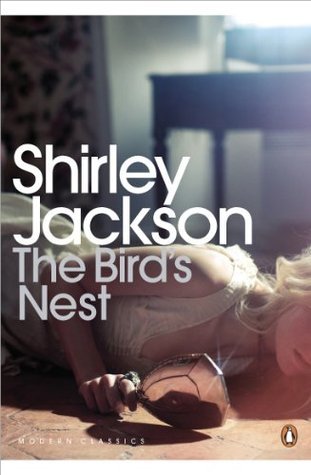What do you think?
Rate this book


The unsettling story of a young woman's descent into mental illness, from the author of The Haunting of Hill House and We Have Always Lived at the Castle.
Elizabeth Richmond is almost too quiet to be believed, with no friends, no parents, and a job that leaves her strangely unnoticed. But soon she starts to behave in ways she can neither control nor understand, to the increasing horror of her doctor, and the humiliation of her self-centred aunt. As a tormented Elizabeth becomes two people, then three, then four, each wilder and more wicked than the last, a battle of wills threatens to destroy the girl and all who surround her. The Bird's Nest is a macabre journey into who we are, and how close we sometimes come to the brink of madness.
Shirley Jackson's chilling tales of creeping unease and casual cruelty have the power to unsettle and terrify unlike any other. She was born in California in 1916. When her short story The Lottery was first published in The New Yorker in 1948, readers were so horrified they sent her hate mail; it has since become one of the most iconic American stories of all time. Her first novel, The Road Through the Wall, was published in the same year and was followed by five more: Hangsaman, The Bird's Nest, The Sundial, The Haunting of Hill House and We Have Always Lived in the Castle, widely seen as her masterpiece. Shirley Jackson died in her sleep at the age of 48.
'The world of Shirley Jackson is eerie and unforgettable ... It is a place where things are not what they seem; even on a morning that is sunny and clear there is always the threat of darkness looming, of things taking a turn for the worse' - A. M. Homes
Shirley Jackson is unparalleled as a leader in the field of beautifully written, quiet, cumulative shudders' - Dorothy Parker
'Shirley Jackson is one of those highly idiosyncratic, inimitable writers ... whose work exerts an enduring spell' - Joyce Carol Oates
255 pages, Kindle Edition
First published January 1, 1954
“Elizabeth, Beth, Betsy, and Bess, they all went together to find a bird's nest...”

Elizabeth Richmond had a corner of an office on the third floor; it was the section of the museum closest, as it were, to the surface, that section where correspondence with the large world outside was carried on freely, where least shelter was offered to cringing scholarly souls. At Elizabeth's desk on the highest floor of the building, in the most western corner of the office, she sat daily answering letters offering the museum collections of pressed flowers, or sold old sea-chests brought back from Cathay. It is not proven that Elizabeth's personal equilibrium was set off balance by the slant of the office floor, nor could it be proven that it was Elizabeth who pushed the building off its foundations, but it is undeniable that they began to slip at about the same time.
"It is not proven that Elizabeth’s personal equilibrium was set off balance by the slant of the office floor, nor could it be proven that it was Elizabeth who pushed the building off its foundations, but it is undeniable that they began to slip at about the same time."
“Elizabeth, Beth, Betsy, and Bess, they all went together to find a bird’s nest . . . Perhaps, you handsome Doctor Wrong, you would care to rename us? We must surely not be the first children you have brought into the world.”
“Each life, I think,” said the doctor, “asks the devouring of other lives for its continuance; the radical aspect of ritual sacrifice, the performance of a group, its great step ahead, was in the organization; sharing the victim was so eminently practical.”
"And our responsibility, Morgen,” he went on, raising his voice slightly, “our responsibility is, clearly, to people this vacant landscape—fill this empty vessel, I think I said before—and, with our deep emotional reserves, enable the child to rebuild. We have a sobering duty. She will owe to us her opinions, her discriminations, her reflections; we are able, as few others have ever been, to re-create, entire, a human being, in the most proper and reasonable mold, to select what is finest and most elevating from our own experience and bestow!”